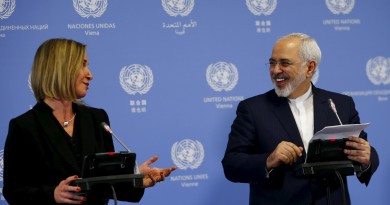Oil: Russia’s Foreign Policy Tool
Shamel Dishack
Staff Writer
Federation is an economic powerhouse that heavily affects its European counterparts. Because Russia possesses the largest reserves of natural gas in the world, and is one of the largest oil exporters, gas and energy are the cornerstone of its economy. It uses its abundance of both resources to undermine European solidarity and subjugate its weaker neighbors: tools of both foreign policy and war. Russia’s influence grows further as European countries continue to develop a dependency on its exports of energy.
The contemporary Russian economy is the outcome of its shift from an authoritarian centralized market to a more liberal and competitive market. Throughout the past three decades, this shift allowed the Russian Federation to rise from the ashes of the USSR and become the sixth largest economy in the world. By utilizing its abundance of natural resources efficiently, Russia gained unprecedented influence over Europe.
The Russian oil market continues to bewilder the European Union, as they find themselves at odds with one of their largest supplier of energy. According to Energypost, European dependency on oil imports has risen drastically from 76 percent in 2000 to 88 percent in 2014, with Russia supplying more than 30 percent of the oil that is brought in.
Moscow uses this economic soft power to deliver blows to the credibility and moral authority of the E.U., specifically to nations such as Ukraine, Moldova, and Georgia. Energypost reports that the Visegrad countries of Poland, Slovakia, Hungary, and the Czech Republic are especially vulnerable to the risk of Russian supply disruption, as they obtain a majority of their oil from Russia.
With economic indicators showing the steady growth of the Russian economy, European countries and the United States continue their attempts to stagnate the regional power’s grip. Although the Russian economy was heavily influenced by sanctions and falling gas prices in the past, the nation’s economic hold in Europe persists.
Foreign Policy reports that Central and Eastern Europe are especially vulnerable to the overwhelming power of Moscow’s economy. On average, Russia’s economic footprint in Serbia, Bulgaria, Latvia, Hungary and Slovakia has ranged from about 11 percent of the economy (in the cases of Hungary and Slovakia) to an astounding 22 percent in Bulgaria over the last decade, according to Foreign Policy.
An unprecedented investment in these countries’ economies highlights Russia’s ability to successfully alter the course of political decisions in these parts of Europe. Foreign Policy emphasizes Russia’s use of other soft power resources such as a robust media presence, cultural and religious foundations, and academic exchange programs, in addition to its unwavering support for illiberal political parties in Europe.
Russia’s interest in Eastern Europe does not mean that Western Europe is left untouched. Apowerhouse such as Germany finds itself in need of Russian resources; as Europe’s largestt gas consumer, it imports 40 percent of its gas from Russia.
Currently, Chancellor Angela Merkel wants to construct a 10 billion dollar pipeline to the gas enriched region of Siberia, a project spearheaded by Russian oil giant Gazprom. Gazprom is Russia’s largest oil and gas company that, while technically private, is owned by the Russian government.
However, the European Community aims to diversify its oil imports in an effort to reduce the influence of what seems to be a threat to the Union. The European Council of Foreign Relations reports that the Energy Union adopted strategies that aim to create an energy policy less attached to Russian markets and more towards other “reliable” clients.
Russia’s tendency to manipulate the flow of gas and resources in order to accomplish its goals and agendas is a deciding factor in the E.U.’s actions. The New York Times reports that since 2016, the European Commission began vetting oil contracts with nations outside of the Union in order to eliminate the vulnerabilities caused by its dependency. The E.U.’s largest concern is falling victim to a supply disruption.
Moscow’s leadership has, through Gazprom, cut off supplies to Ukraine in 2006, the winter of 2008-2009, and most recently 2014. As Ukraine remains in flux between closer ties to the E.U. and Russia, the latter continues to use oil for coercive means.
In April 2014, Russia accused Ukraine of failing to pay its debts, and raised oil prices by 80 percent from $268.5 per 1,000 cubic meters to $485 per 1000 cubic meters, reports the BBC. Later that year in September, Russia dropped oil supplies to Poland, Slovakia and Germany. This act was seen as a warning signal not to extend E.U. sanctions on Russia, and also not to sell on to Ukraine some of the gas it was receiving from Russia.
The E.U. is not alone in combating Russian aggression as the United States continues its efforts to tip the scales in favor of its European allies. President Trump urged Europe to consider dumping Russian gas in favor of U.S. gas, now that American natural gas appears to be in the midst of a “fracking revolution,” reports Balkan Insight. Radio Free Europe states that as the United States’ policies clearly show a desire to take advantage of its plethora of natural gas.
Reuters reports that the U.S. wants to use its abundance of natural gas as a political tool to reduce Eastern Europe’s dependency on Russian gas. The U.S.’ desire to export to Europe, coupled with its extensive sanctions on Russian business and individuals, further raises tensions between the two.
Despite Moscow’s highly effective economic weapon, Russia’s economy both profits and suffers from its dependancy on oil. While the abundance of oil, gas, and energy enabled it to climb out of its post-Soviet struggles, the nation continuously falls victim to the constant fluctuations of the oil market. In other words, if the price of a barrel goes up, the economy benefits, but when the price drops, the economy suffers.
This vulnerability could be seen during the 2014 oil crisis. In December 2014, a 40 percent drop in barrel prices (from $114 to less than $70) caused Russia’s Ruble to fall to record-breaking values, reports the Economist. It is in moments like these that sanctions from the outside have their most lasting effect, as during this time the U.S. and E.U. imposed sanctions as a response to Russia’s invasion of Crimea.
Europe’s reliance on oil and gas is used as a leash by Russia to promote its political ends. Should Russia continue exploiting this weakness, European solidarity may be at risk, as the E.U. finds itself both feeding off, and facing off, with Russia.
With Russia’s ambitions to expand towards nations like Georgia, Bulgaria, Ukraine and even Syria, it will continue to find ways to counter Europe’s search for alternative clients. With countries such as Qatar and Turkmenistan constantly being mentioned as possible clients, Europe will nevertheless need a cohesive policy if it desires to quench its thirst for resources – without supporting Russia’s economic arsenal.


